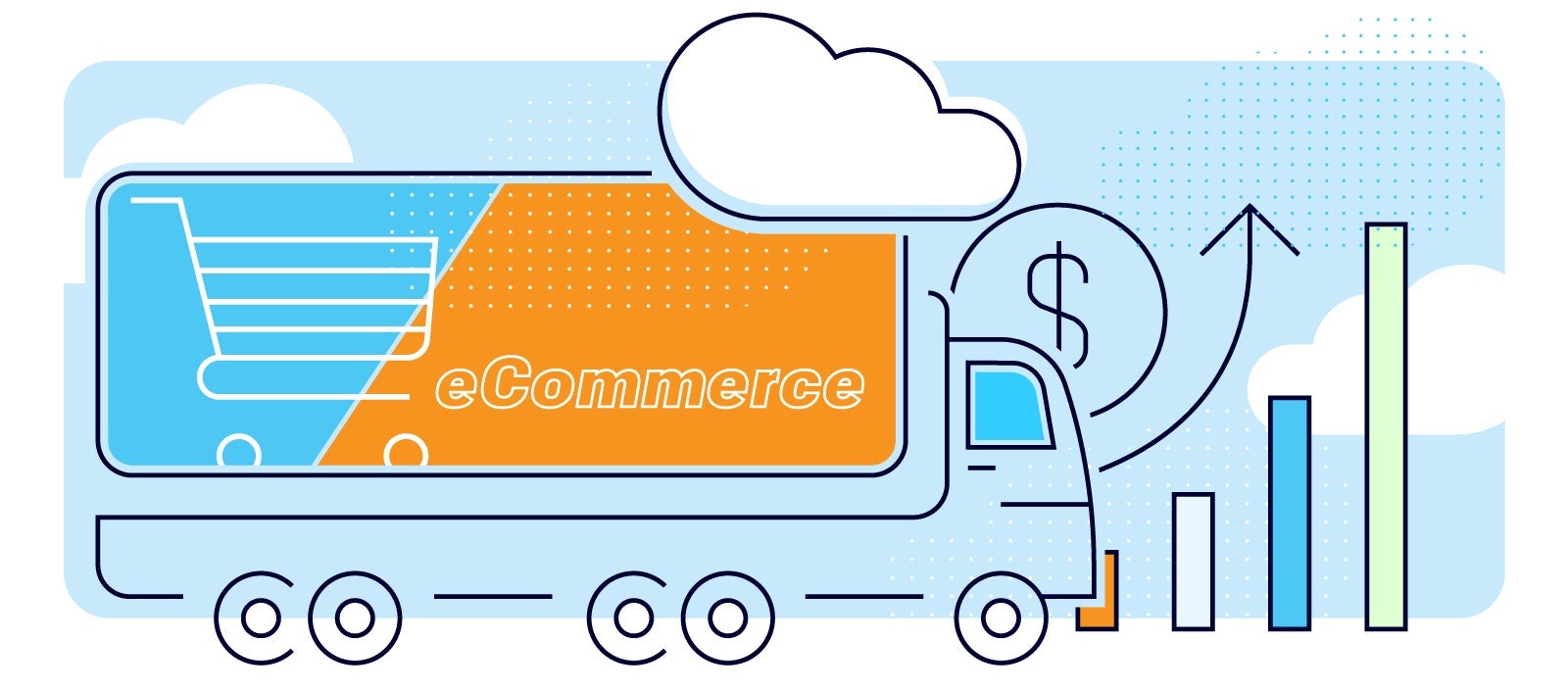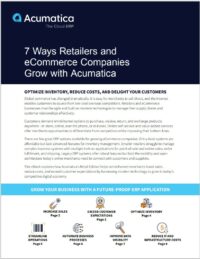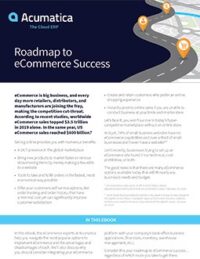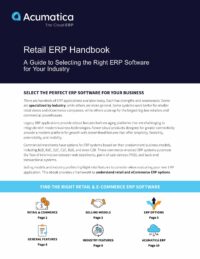Why Should Ecommerce Businesses Consider Ecommerce ERP Software?
Ecommerce solutions provide prolific customer information regarding preferences, behaviors, and interactions, as well as shopping cart behaviors (e.g., abandonment and conversions). An ERP system links and synchronizes departmental information, including sales, accounting, supply chain, and more. Together, they provide retailers with complete, end-to-end pictures of their businesses.
Key features you should look for in an ecommerce ERP solution include the following:
Commerce Connectors: Seamless integrations with leading ecommerce platforms, like Amazon, BigCommerce, and Shopify, provide real-time, bi-directional flow of data, automated production information syncing, and support for B2C, B2B, and D2C sales.
Inventory Management: Managing inventory with an ERP system for ecommerce ensures streamlined item management, powerful replenishment for automated orders, quality traceability with lot and serial control, and flexible location management.
Order Management: Integrated order management enables ecommerce businesses to reduce order times, simplify pricing and discounts, save time with automation, and understand their costs.
Warehouse Management System: Extend order and inventory management capabilities with a warehouse management solution that offers various picking options, barcoded pick lists, packing automation, shipment creation, shipping labels/documentation, customer notifications, stock turnover data, cart and tote data, role-based dashboards, and more.
Point of Sale: Manage all sales transactions from a single order screen with real-time inventory and cash register reconciliation reporting, touch-screen compatibility, and connectivity to cash registers, barcode scanners, receipt printers, and credit card terminals.
CRM: Capture all marketing, sales, billing, finance, and customer data in one solution while eliminating manual processes and improving the customer experience (CX).
In addition to these key features, you should determine if the ERP system you choose can handle multi-channel sales and omnichannel operations (it should) and if the integration between your ERP and ecommerce platforms is secure (it better be). And you should consider ERP solutions that are based in the cloud, which takes the ERP ecommerce integration a step further.
Specifically, cloud-based ERP solutions allow you and your team to manage orders, returns, inventory, and more from any location. Cloud ERP solutions also provide you with any-time access to your critical business information, which is vitally important when you’re managing a 24/7 ecommerce website and striving to meet the needs of customers who demand immediate and accurate service.
“I was at dinner with a customer recently who asked if we had any availability on a part. With Acumatica, I was able to pull up our inventory on my phone, see exactly what we had, and let them know. It’s very nice to have that web capability..” – Ryan Brown, CEO, xByte Technologies
Implementing Ecommerce ERP Solutions
As with any large project, an ERP implementation takes time, money, and effort. How well you manage the implementation and its requirements depends on which ecommerce ERP solution you choose.
It’s vital that you select ecommerce ERP software that provides the key features noted previously, gives a clear breakdown of costs, and comes with a vendor or partner who is willing—and able—to guide you through the implementation journey. This guidance should include transparency on critical information, such as how long the implementation will take (which depends on your organization’s size, its complexity, and the type of ERP system you select), if training is affordable or even complimentary, and if support continues after go live.
Once you’ve found the ecommerce ERP system that best suits you, you’ll be one step closer to benefitting from the power of an industry-specific solution.
 Canada (English)
Canada (English)
 Columbia
Columbia
 Caribbean and Puerto Rico
Caribbean and Puerto Rico
 Ecuador
Ecuador
 India
India
 Indonesia
Indonesia
 Ireland
Ireland
 Malasya
Malasya
 Mexico
Mexico
 Panama
Panama
 Peru
Peru
 Philippines
Philippines
 Singapore
Singapore
 South Africa
South Africa
 Sri-Lanka
Sri-Lanka
 Thailand
Thailand
 United Kingdom
United Kingdom
 United States
United States







